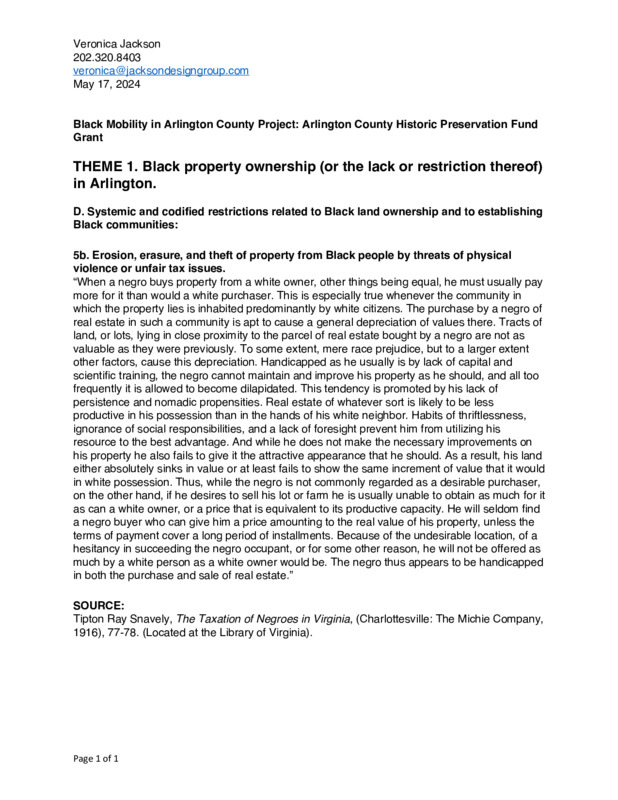1916 Taxation of Negroes in Virginia
Item
-
Subject of Research
-
1916 Taxation of Negroes in Virginia
-
Story
-
“When a negro buys property from a white owner, other things being equal, he must usually pay more for it than would a white purchaser. This is especially true whenever the community in which the property lies is inhabited predominantly by white citizens. The purchase by a negro of real estate in such a community is apt to cause a general depreciation of values there. Tracts of land, or lots, lying in close proximity to the parcel of real estate bought by a negro are not as valuable as they were previously. To some extent, mere race prejudice, but to a larger extent other factors, cause this depreciation. Handicapped as he usually is by lack of capital and scientific training, the negro cannot maintain and improve his property as he should, and all too frequently it is allowed to become dilapidated. This tendency is promoted by his lack of persistence and nomadic propensities. Real estate of whatever sort is likely to be less productive in his possession than in the hands of his white neighbor. Habits of thriftlessness, ignorance of social responsibilities, and a lack of foresight prevent him from utilizing his resource to the best advantage. And while he does not make the necessary improvements on his property he also fails to give it the attractive appearance that he should. As a result, his land either absolutely sinks in value or at least fails to show the same increment of value that it would in white possession. Thus, while the negro is not commonly regarded as a desirable purchaser, on the other hand, if he desires to sell his lot or farm he is usually unable to obtain as much for it as can a white owner, or a price that is equivalent to its productive capacity. He will seldom find a negro buyer who can give him a price amounting to the real value of his property, unless the terms of payment cover a long period of installments. Because of the undesirable location, of a hesitancy in succeeding the negro occupant, or for some other reason, he will not be offered as much by a white person as a white owner would be. The negro thus appears to be handicapped in both the purchase and sale of real estate.”
-
Source
-
Tipton Ray Snavely, The Taxation of Negroes in Virginia, (Charlottesville: The Michie Company, 1916), 77-78. (Located at the Library of Virginia).

